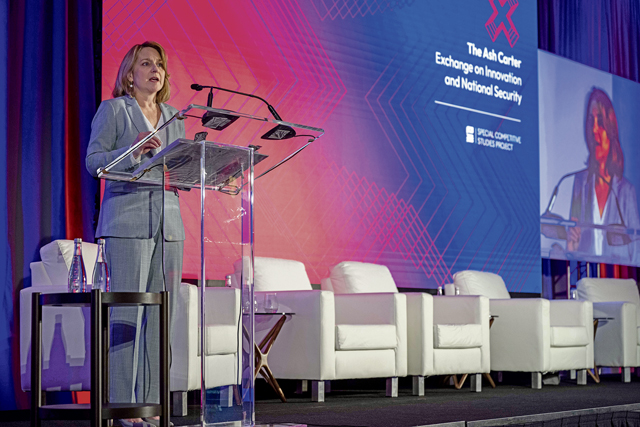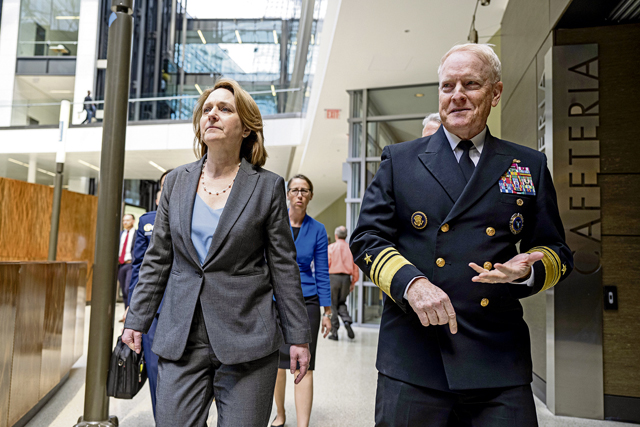
Deputy Secretary of Defense Kathleen H. Hicks warned today that the Defense Department’s propensity to innovate will be vital to deterring future conflict and maintaining the U.S. military’s strategic edge going forward.
That strategic advantage, Hicks said, has come under increasing pressure given the rapid advance of China, the U.S.’s “pacing military challenge,” which shows no sign of letting up.
“And because time and our competitors are not standing still, we cannot stand still, either,” she said. “The [People’s Republic of China] is a generational challenge; while it will change over time, it isn’t going anywhere.”
“So, we’re in a persistent competition for advantage,” she said. “But we must respond with confidence and urgency, not react with pessimism and panic.”
Innovation, she said, remains a “critical tool” for meeting the challenge.
“Make no mistake, we need defense innovation in every form — from a combination of new technologies and processes to new tactics, techniques and procedures — in order to overcome operational challenges and present dilemmas to those who might threaten us,” Hicks said.

In order to be effective, that innovation must be an all-hands-on-deck effort from not only those in the Pentagon, but also the front-line warfighters.
“[I]nnovations are often shaped by who’s in the room, and who has a seat at the table,” she said. “It isn’t just about which tech sectors get R&D dollars. It’s also about having a warfighter-centric culture, and making sure we bring together operators, intel analysts and technologists routinely and systematically.”
Meeting that challenge, Hicks said, is often easier said than done in an organization as large as the Defense Department and will require changes in culture to overcome the barriers to innovation that persistently emerge within the DOD.
“We should never be satisfied,” she said. “And in an organization this large, and an ecosystem this complex, we should always be pushing to get out of our own way.”
Key to fostering a culture of innovation, Hicks said, is embracing a willingness to fail and taking a talent-centric approach to addressing pressing challenges, recognizing that “people will always be the engine of innovation.”
Hicks offered her remarks as part of the Ash Carter Exchange on Innovation and National Security in Washington.
The event, named after the late Secretary of Defense, was offered as a forum to bring together representatives from the government and private sector to advance collaboration on the most pressing challenges in national security.
Carter, a trained theoretical physicist who died in October at age 68, was widely known for his ability to spur innovation throughout his long tenure in government service.
“America’s DNA is to innovate — Ash knew this as well as anyone,” Hicks said. “And it has repeatedly enabled us to drive and master the future character of warfare.”


